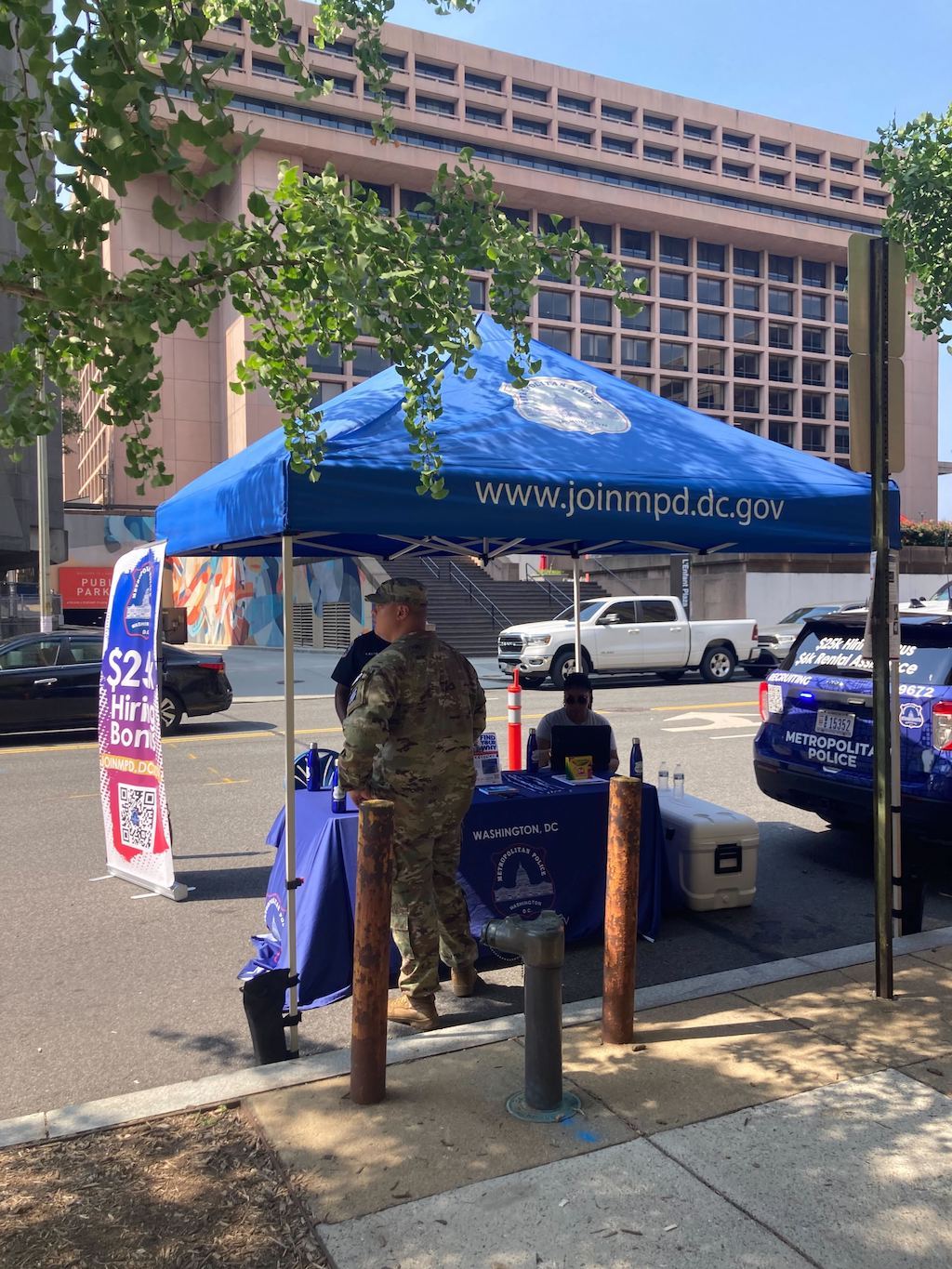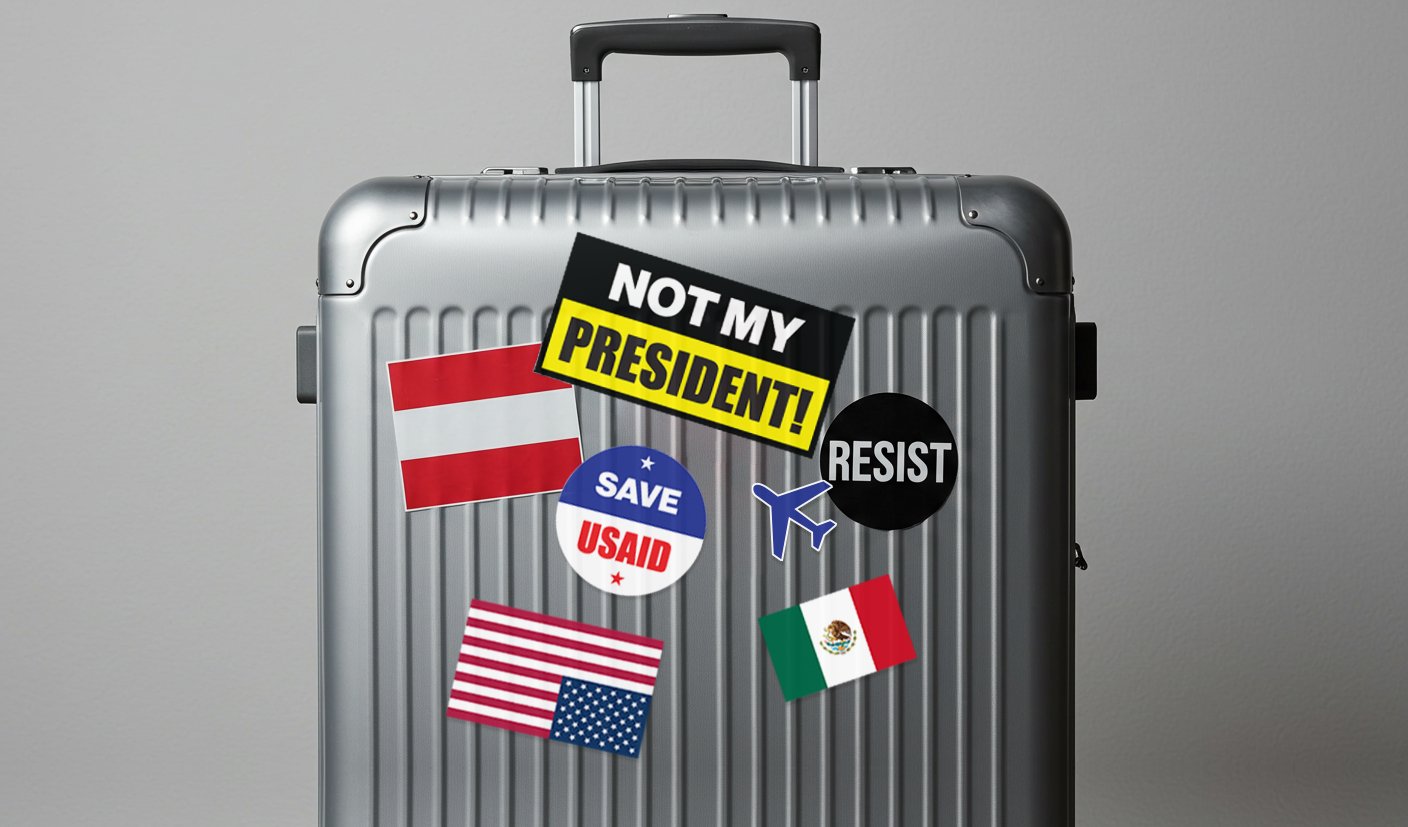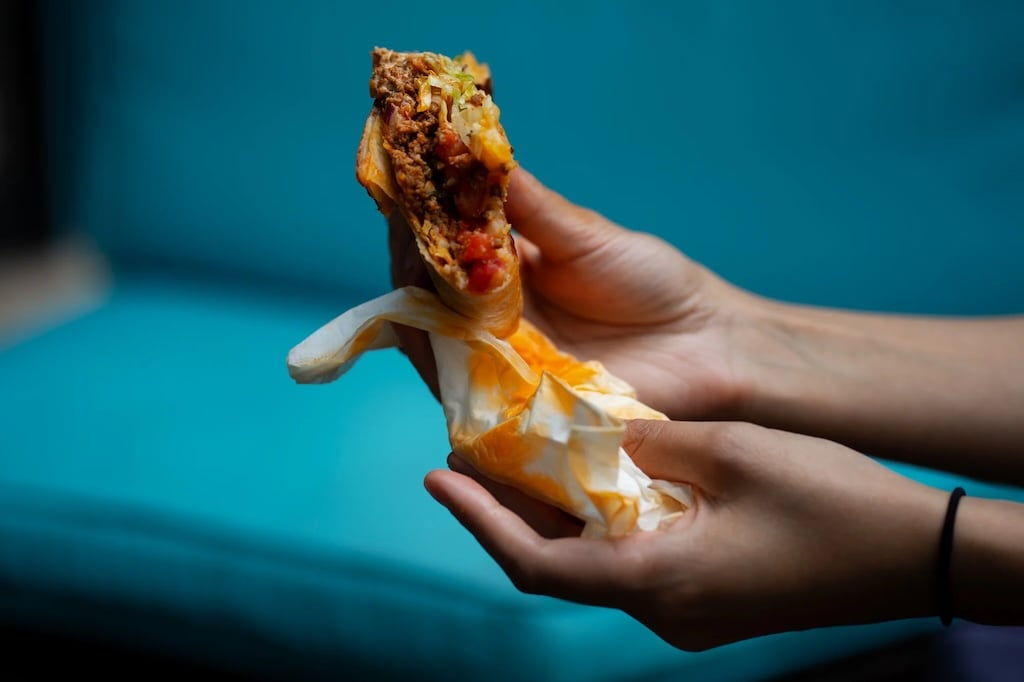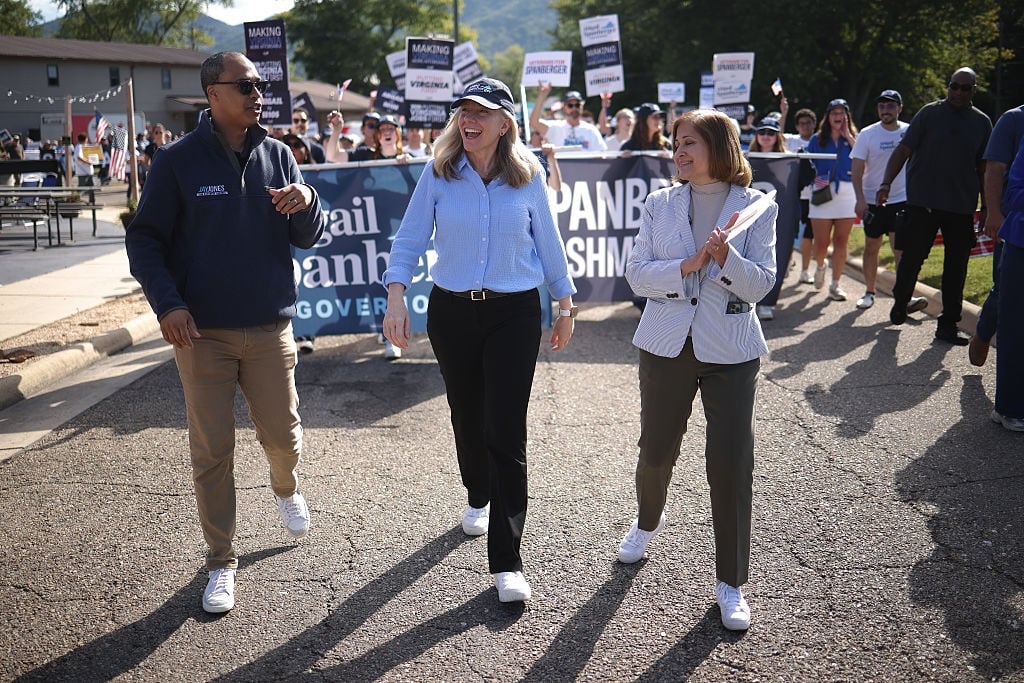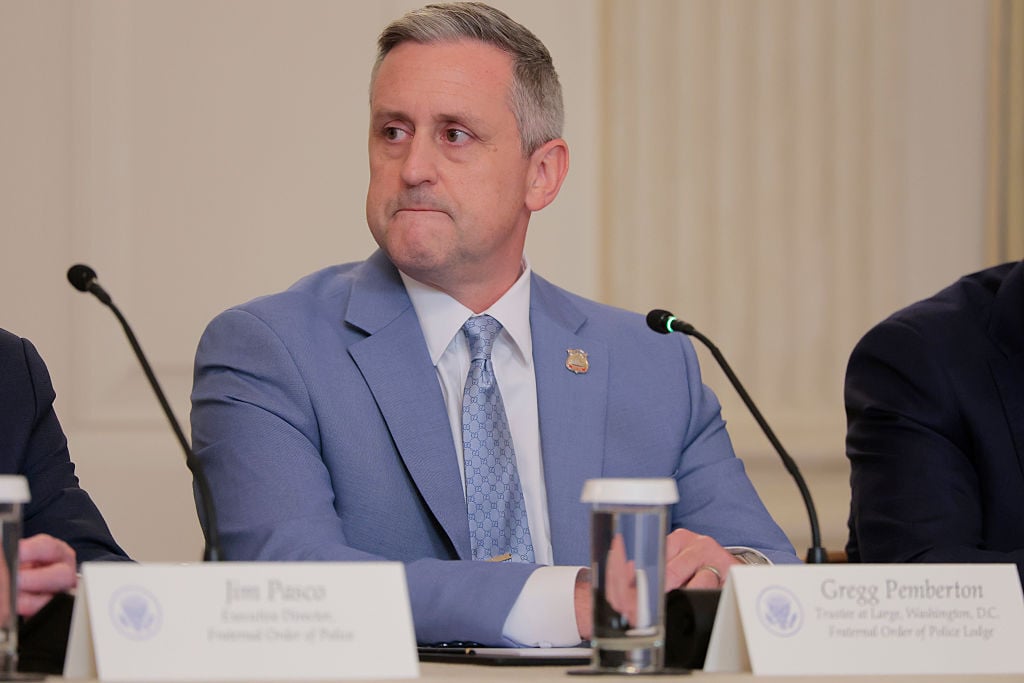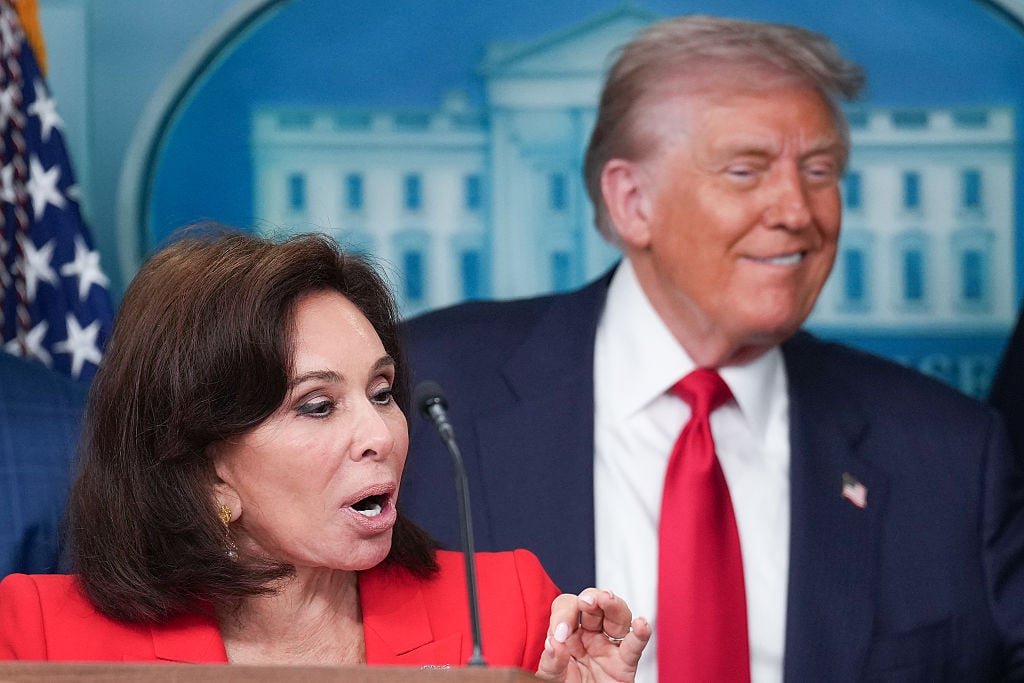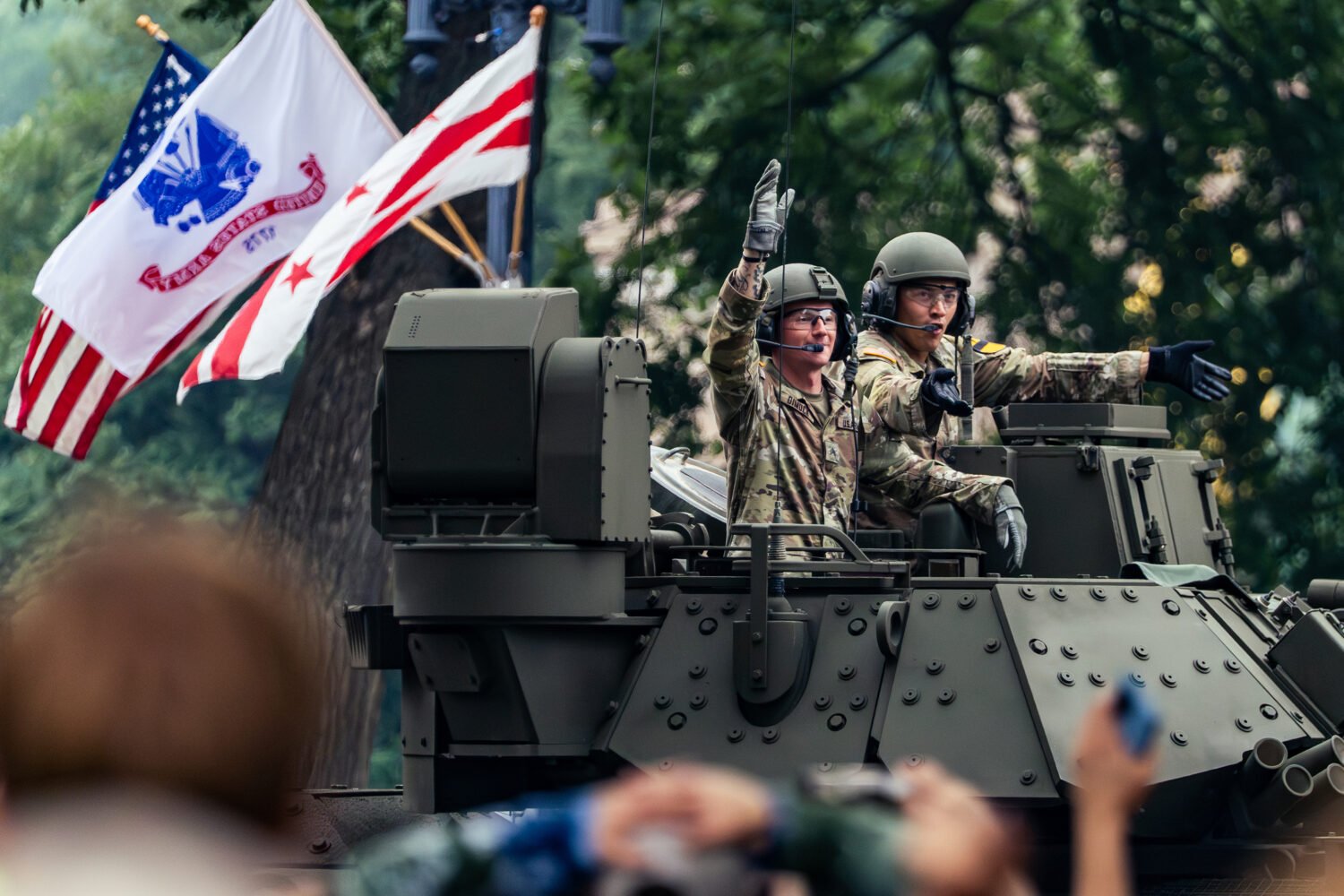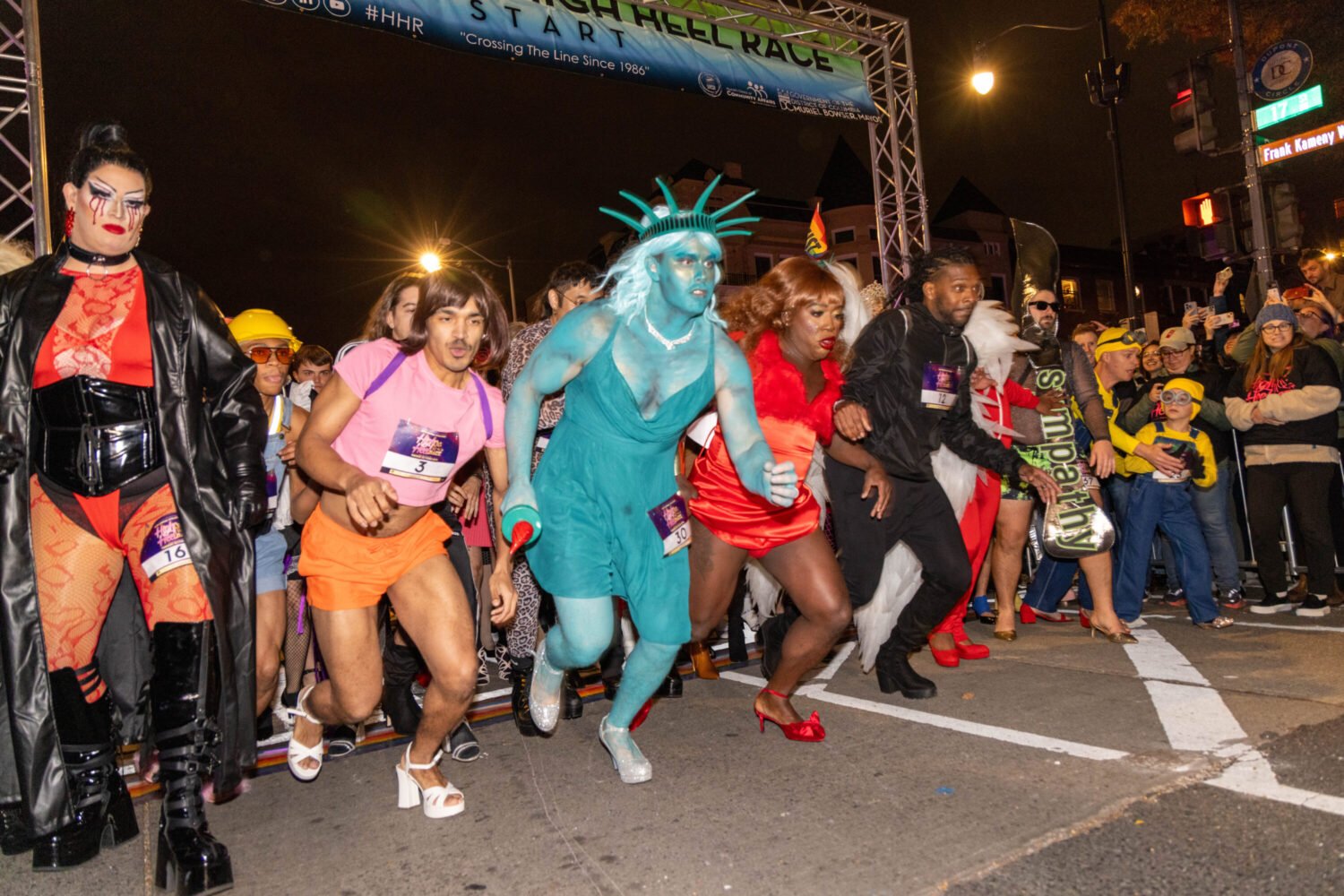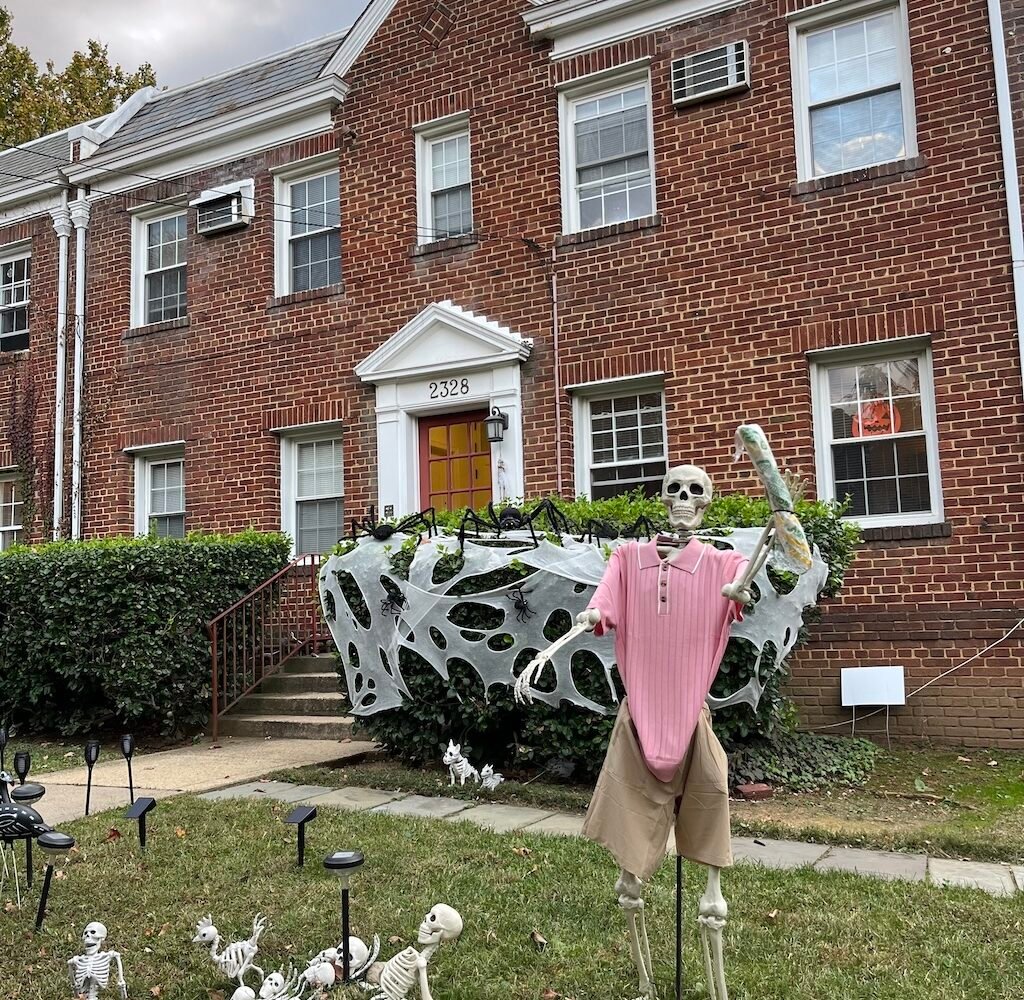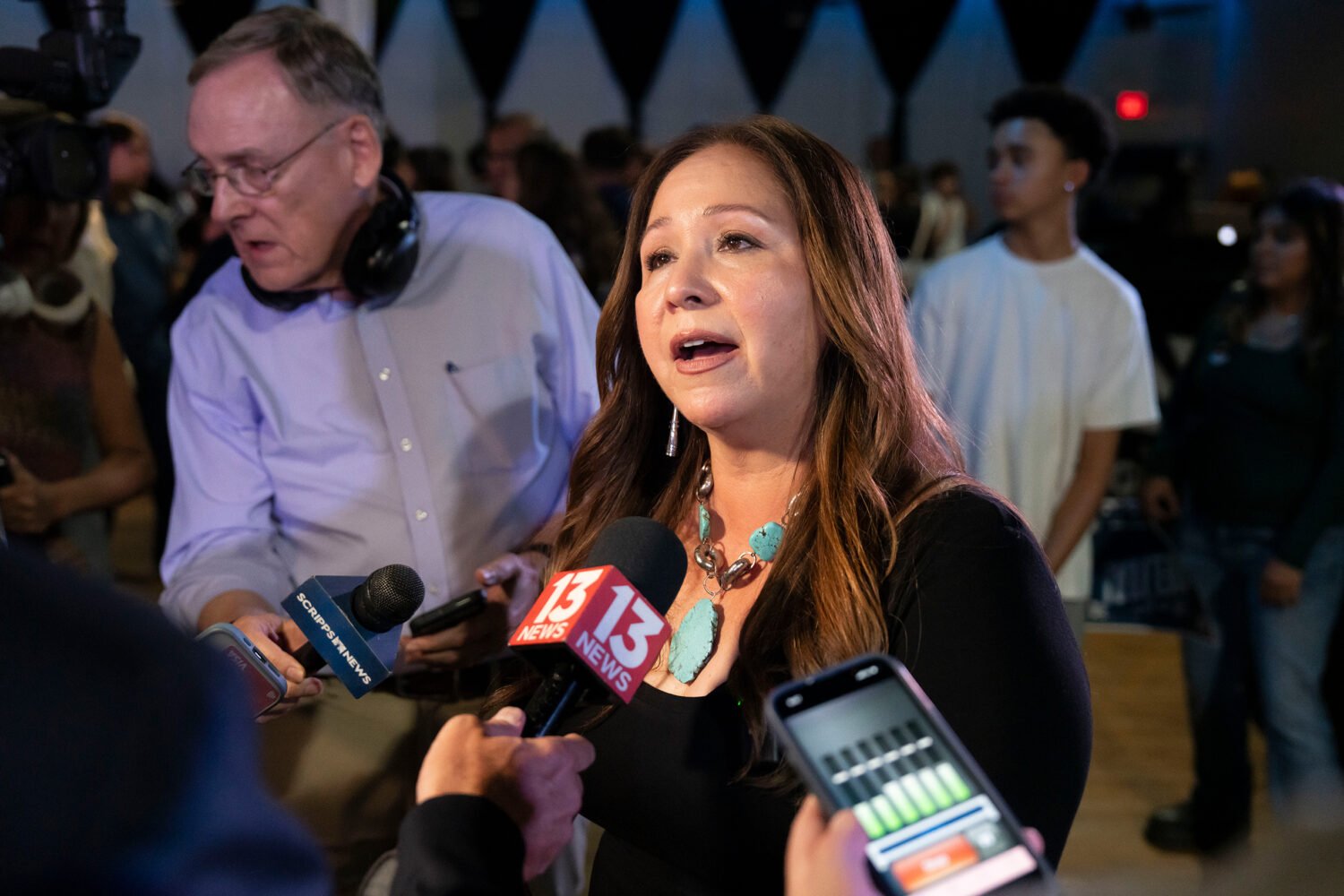While some Washingtonians have been dreading the presence of 7,000 soldiers in our city for Saturday’s military parade, the DC police seemed to sense an opportunity to grow their ranks.
On Thursday morning outside of the General Services Administration building, where 5,000 of the soldiers are sleeping on cots in an arrangement many told me is “better than expected,” the District’s Metropolitan Police Department set up a recruiting tent. When asked about the location, Officer Nancy Matos denied the department was specifically targeting soldiers. “We pick random spots in the city,” she told Washingtonian, adding, “There’s obviously a lot of viable candidates here.”
Matos noted while there have been some interested candidates so far, the DC police “just got here.” After encouraging me to include information about the force’s benefits and starting salaries in this article, I stepped away but hovered at the edge of the tent for a few minutes, long enough to witness an impassioned conversation about the merits of policing in DC over Baltimore between another officer and a uniformed soldier. But other service members seemed less interested—I overheard a young man tell his friends: “You won’t catch my ass working down here” as he walked past.
The soldiers have already been given some training on a topic they would need to know about were they to join the DC police force: crime. Yesterday, I spent most of the day hovering outside the GSA building asking them about their time in DC so far. Most soldiers told me they had been briefed on crime in the city. In fact, two young service members told me their safety briefing included a “crime map” of the city with blue circles representing shootings, stabbings, and muggings. Before I had the chance to ask to see it, their ride arrived (they also told me Uber is considered a “preferred” method of transportation due to safety issues.) Other soldiers told me they were warned the Metro is “confusing.” While I couldn’t confirm whether they found this to be true on my commute back I did notice that, like many visitors, a few were confused by the traditional DC escalator etiquette of walking on the left, standing on the right.
The pair also explained one of the main concerns is service members “getting too intoxicated,” so there’s a limit on how many drinks soldiers can have, if they’re even allowed to imbibe. These two visited Rocket Bar the night before, “mainly for the games though,” they assured me. Perhaps predictably, but still chagrin-inducing, most of the bars and clubs soldiers reluctantly admitted visiting are places I frequented in college, with Rocket Bar, Tokyo Pearl, and spots at the Wharf all well represented.
Not all the soldiers are indulging, however. An older staff sergeant told me in his division drinking is strictly forbidden and he enforces a buddy system to keep some of the younger guys under him safe: “I got my thumb on their heads; we’re representing the US Army.”
But despite the rules about drinking and a strict 10 PM curfew for most, a lot of the soldiers I talked to tell me this tour of duty in DC feels a lot like a vacation—mostly because they usually don’t sleep indoors with air conditioning.

